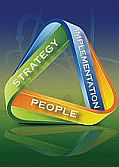Speaker
Christopher Gazze
(IAEA)
Description
The timely collection and analysis of all safeguards relevant information is the key to drawing and maintaining soundly-based safeguards conclusions. In this regard, the IAEA has made multidisciplinary State Evaluation Groups (SEGs) central to this process. To date, SEGs have been established for all States and tasked with developing State-level approaches (including the identification of technical objectives), drafting annual implementation plans specifying the field and headquarters activities necessary to meet technical objectives, updating the State evaluation on an ongoing basis to incorporate new information, preparing an annual evaluation summary, and recommending a safeguards conclusion to IAEA senior management.
To accomplish these tasks, SEGs need to be staffed with relevant expertise and empowered with tools that allow for collaborative access to, and analysis of, disparate information sets. To ensure SEGs have the requisite expertise, members are drawn from across the Department of Safeguards based on their knowledge of relevant data sets (e.g., nuclear material accountancy, material balance evaluation, environmental sampling, satellite imagery, open source information, etc.) or their relevant technical (e.g., fuel cycle) expertise.
SEG members also require access to all available safeguards relevant data on the State. To facilitate this, the IAEA is also developing a common, secure platform where all safeguards information can be electronically stored and made available for analysis (an electronic State file). The structure of this SharePoint-based system supports IAEA information collection processes, enables collaborative analysis by SEGs, and provides for management insight and review. In addition to this common platform, the Agency is developing, deploying, and/or testing sophisticated data analysis tools that can synthesize information from diverse information sources, analyze diverse datasets from multiple viewpoints (e.g., temporal, geospatial, and process-centric), and document results, including intermediate analytical products. The electronic platform and analysis tools are described.
| Country or International Organization | IAEA |
|---|---|
| EPR Number (required for all IAEA-SG staff) | 739 |
Primary author
Christopher Eldridge
(IAEA)
Co-authors
Benjamin Wilson
(IAEA)
Christopher Gazze
(IAEA)
Daniel Gagne
(IAEA)
John Murray
(IAEA)
Ms
Yana Feldman
(IAEA-SGIM)
fabian rorif
(iaea)

